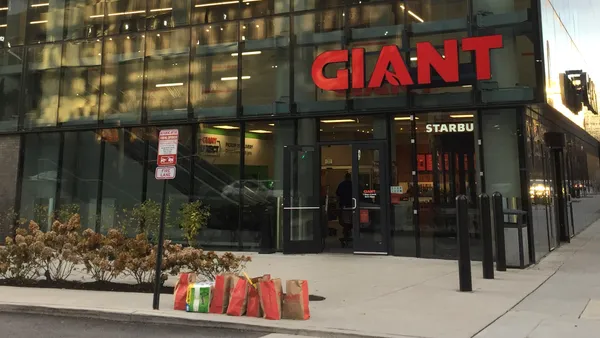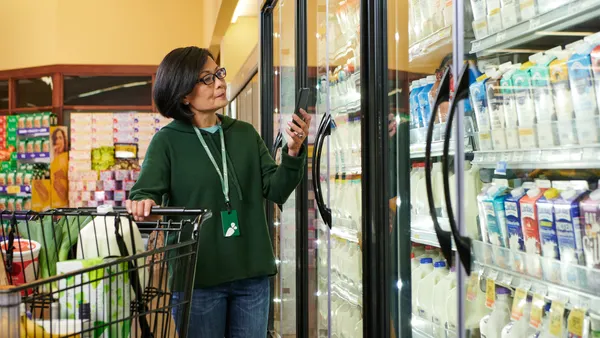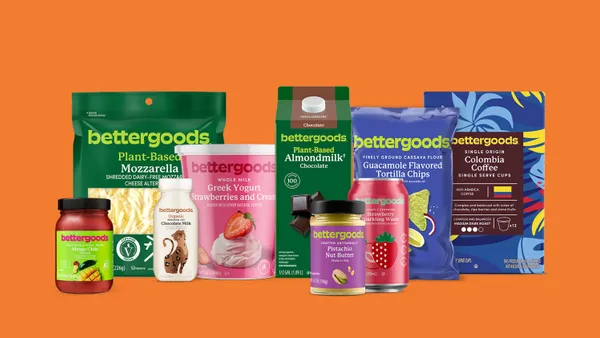By the time they met at an Atlanta business mixer in 2016, Manav Thaker and Sajal Rohatgi had traveled very different paths through life. Thaker, a first-generation Indian-American, had a background in hospitality and had most recently managed a resort on Mexico’s Yucatán Peninsula. Rohatgi had emigrated from India several years earlier, where he had earned a degree in engineering and worked for one of the country’s largest companies, Reliance Communications.
But over beers, the two found common ground in their love of traditional Indian cuisine, and their frustration with how inconvenient it was to buy their favorite products in the U.S.
That meeting eventually led to the two starting Subziwalla, an online grocer that delivers Indian favorites directly to consumers.
The company, which recently completed its first year in business, operates in and around Atlanta. Thaker and Rohatgi, though, envision Subziwalla becoming a nationwide service serving up authentic chapati, rose petal ice cream and mustard oil to America's fast-growing Indian population — a population that has more than doubled over the past twenty years and represents $266 billion in buying power, according to a 2017 report by researchers at the University of Georgia.
Before opening their business, Thaker and Rohatgi surveyed 1,000 local Indian consumers and found that families of three spent between $350 and $400 per month on Indian groceries.
"They're one of the most affluent demographics in the U.S., and they still don't get proper service in their own stores," Thaker told Grocery Dive.
From ex-pats to second-generation shoppers, Indian-Americans value traditional fare, said Thaker. But Indian grocery stores, many of which are mom-and-pop shops, are often located far away from consumers and don’t offer a particularly compelling shopping experience, he noted.
"When you get into stores, there's no customer service," Thaker said. "You go on a weekend and it's a madhouse. The entire experience is just a few hours long, and at the end of the day you have all these ingredients and you're too tired to cook with them."
Patel Brothers, the largest Indian grocery chain in the U.S., operates 57 stores across the country and has become a favorite destination for many shoppers. In major cities, though, there's typically just one store, meaning the weekly shop requires a long trip for many consumers, Rohatgi said.
Subziwalla's customers range from large families to second-generation college students at local universities like Georgia Tech that are looking for a taste of home cooking. What's surprised Thaker and Rohatgi is how many consumers over 45 are using the service.
Once shoppers find out about Subziwalla, they tend to like it. Sixty-five percent are repeat users, and roughly 25% placed three or more orders over the past year. The site's top 100 users have ordered between $1,500 and $2,000 worth of goods.
"(Indian-Americans) are one of the most affluent demographics in the U.S., and they still don't get proper service in their own stores."

Manav Thaker
Co-founder, Subziwalla
Subziwalla stocks more than 4,000 products and sources through distributors as well as local companies. It offers next-day service through a special arrangement with FedEx. Orders must be at least $40 and include a $4.99 fee and are delivered in reusable temperature-controlled bags the next day by 8 p.m.
Produce has proven to be a tough sell for many online grocery outfits, but not Subziwalla, where 90% of orders contain fresh fruits and vegetables. Rohatgi and Thaker attribute this to traditional Indian cuisine's focus on plant-based ingredients, and to the company's emphasis on supply quality. The two say they're picky about their suppliers, and with next-day service they have the time to replace any produce that doesn't arrive at their standards.
In addition to specialties like frozen ghee and khakhara snacks, Subziwalla also sells staples like milk, eggs and bread. These "daily needs," said Rohatgi, are meant to round out shoppers' orders and keep them from having to visit other stores or sites.
"Our main objective is to become a one-stop shop," said Rohatgi.
Online grocers like Subziwalla are finding room to play even as Amazon has increased its grocery presence. Regional grocers like FreshDirect and Good Eggs have expanded, while Thrive Market and Boxed deliver nationwide. In a recent interview with Grocery Dive, Boxed CEO Chieh Huang said niche e-tailers can bloom in the shadow of the Everything Store.
Seeing their opportunity, ethnic grocers are moving online. H-mart, the popular Asian chain, now offers same-day delivery from all 62 of its locations. Hispanic chains like NorthGate Market and Fresco Y Mas have also recently moved into same-day delivery, while various online specialty players ship Indian, Asian and other specialty groceries to customers.
But the online grocery business is replete with failures, stretching back to the early days of Webvan and the original Kozmo.com. In Subziwalla‘s case, traditional grocers in areas with high Indian populations still stock popular products. Online shopping also still has very low penetration among consumers, with many preferring the sensory experience of shopping in-store.
The main challenge, analysts say, is improving margins and driving enough regular business to stay ahead of steep operational costs.
"The demand is there, and it's tempting to try and satisfy it," Bill Bishop, chief architect with Brick Meets Click, recently told Grocery Dive. "The challenge is the economics."
Even Amazon, with its stores of investment capital, has struggled to grow its dedicated e-grocery, AmazonFresh. The service recently opened in Las Vegas, its first new market after a nearly two-year hiatus.
Thaker and Rohatgi declined to discuss Subziwalla’s sales and funding in-depth, noting that they’re looking to take on investors who share values.
To raise brand awareness, Subziwalla has expanded its promotional investments. There are food trucks offering cuisine made with Subziwalla ingredients. Local chefs are promoting the business on their sites and in their restaurants. Next month, Subziwalla plans to introduce expanded content on its website detailing products and their suppliers. An ordering app is due to follow later this year.
Within the next few months, Rohatgi and Thaker plan to expand to Athens, where the University of Georgia is located, along with Peachtree City. These smaller cities have significant Indian populations, they said, and can be serviced using the company’s existing Atlanta warehouse. After that, the two have their eyes on Charlotte, North Carolina and Birmingham, Alabama.
If all goes well, Subziwalla will be in several major cities within the next five years, Rohtagi and Thaker said, tapping into what they see as growing demand for authentic products across generations.
"Indian food is very personal," Thaker said. "It’s unique to each family. It’s unique to where people are from. North Indian cuisine is very different from south Indian cuisine. And they pass down that cuisine and those recipes like they would any tradition."











